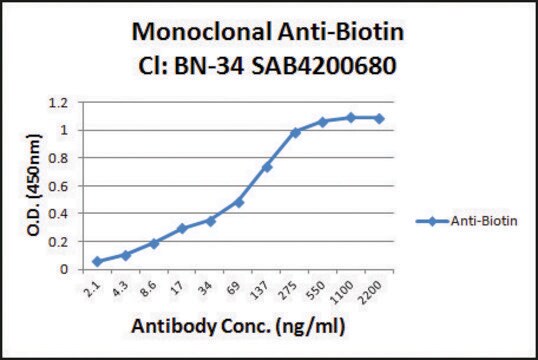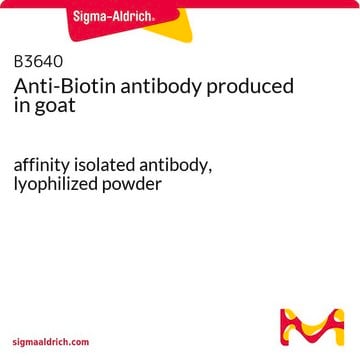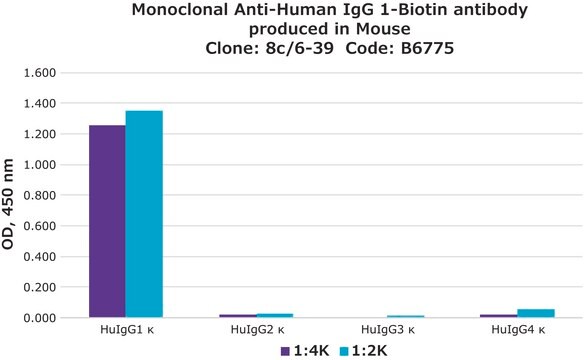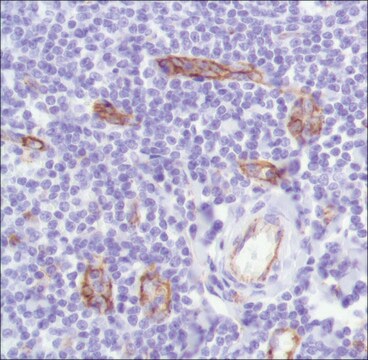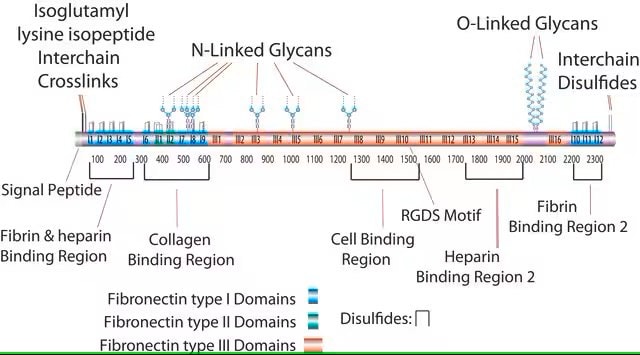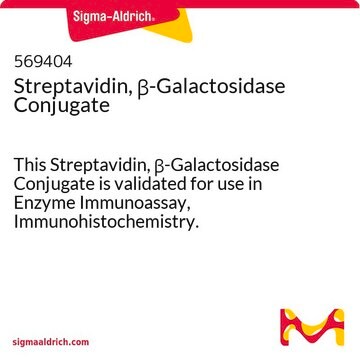MABS2321
Anti-Biotin Antibody, clone 8H6.8
Synonym(s):
Vitamin B7
About This Item
Recommended Products
biological source
mouse
Quality Level
antibody form
purified antibody
antibody product type
primary antibodies
clone
8H6.8, monoclonal
purified by
using protein G
species reactivity (predicted by homology)
all
packaging
antibody small pack of 100
technique(s)
ELISA: suitable
immunofluorescence: suitable
western blot: suitable
isotype
IgG1κ
Specificity
Immunogen
Application
Evaluated by ELISA with Biotin-BSA.
ELISA Analysis: Serial dilutions from a representative lot detected Biotin-BSA in ELISA application.
Tested Applications
Western Blotting Analysis: A 1:5,000 dilution from a representative lot detected Biotin-BSA.
Immunofluorescence Analysis: A 1:50 dilution from a representative lot detected Biotin-conjugates in Human kidney tissue sections.
Note: Actual optimal working dilutions must be determined by end user as specimens, and experimental conditions may vary with the end user.
Target description
Physical form
Reconstitution
Storage and Stability
Other Notes
Disclaimer
Not finding the right product?
Try our Product Selector Tool.
Storage Class
10 - Combustible liquids
wgk_germany
WGK 2
flash_point_f
Not applicable
flash_point_c
Not applicable
Certificates of Analysis (COA)
Search for Certificates of Analysis (COA) by entering the products Lot/Batch Number. Lot and Batch Numbers can be found on a product’s label following the words ‘Lot’ or ‘Batch’.
Already Own This Product?
Find documentation for the products that you have recently purchased in the Document Library.
Our team of scientists has experience in all areas of research including Life Science, Material Science, Chemical Synthesis, Chromatography, Analytical and many others.
Contact Technical Service